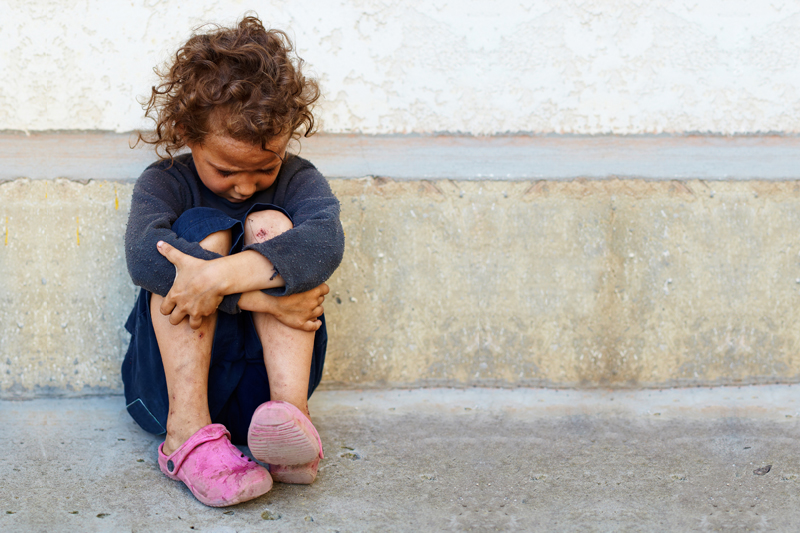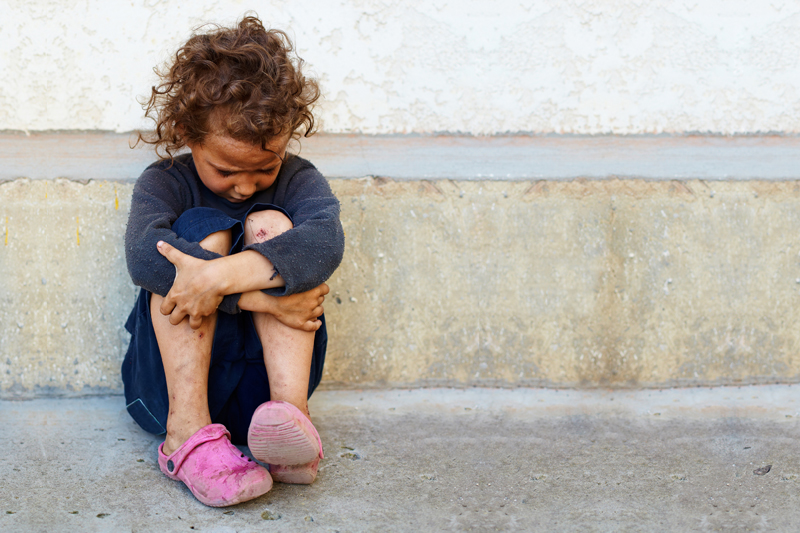Teach Children How to Say No

From an early age, parents teach children to respect authority, as well as their elders. Yet by teaching children to respect authority and elders, unequivocally, and without question, is in reality setting up a child for exploitation.
Parents need to teach children to question what does not feel right in the environment around them. One of the most important things a child can learn is to listen to the warning signs he or she is feeling internally. It is imperative a child learns to recognize when he or she is feeling frightened or uncomfortable around someone. Instead of teaching children to respect elders or authority parents should teach children, what the internal warning bells are that signals danger.
When a child suddenly feels the hairs on the back of his or her neck standing up, or funny feelings in his or her stomach it means something is wrong. If a child's hands suddenly feel sweaty and cold, and his or her heart is racing teach them to look around, to listen, and if necessary to get out of the area immediately. Sometimes when things are scary, our mouths sometimes suddenly get very dry, and this maybe a warning sign that something causing the child to feel uncomfortable or fearful.
Teach children how to clarify with adults if he or she has a question as to what the adult is telling him or her to do, if it feels wrong. Although children are taught that he or she is suppose to listen to an adult, especially an authority figure like a doctor, teacher, scout leader, minister, or even a police officer, no child should do anything that makes him or her feel exploited uncomfortable.
Children have the right to have their parent present if he or she is feels uncomfortable about a situation. Tell a child any legitimate adult would not prevent a parent from being present or ask them to take off their clothes or touch or be touched in any private part of their body with out him or her knowing or giving permission. To do so is an abuse of power.
Adults will often claim it is a “rite of passage” or that the child had to “prove his or her oath of obedience” by doing what the adult says. Adults expect children to follow their direction simply “because I said so.” Early on, a parent will admonish a child who tells him or her “No!” with “Don’t you tell me no young man I am your mother” or “I am your father!”
What a great disservice a parent does teaching a child to do something simply because I am an adult and you are a child. Teach children to say “No!” to anyone who asks him or her to do something that makes them feel unsafe. Most importantly teach children to tell a parent or adult when the warning bells begin ringing loud and clear telling him or her that danger is near!
Children can learn to show respect to adults who deserve respect and to kick the buttocks of those adults who try to hurt them! Our job, as a parent, is to empower our children with knowledge, and teach them how to stay safe no matter who is trying to exploit or hurt them.
Parents need to teach children to question what does not feel right in the environment around them. One of the most important things a child can learn is to listen to the warning signs he or she is feeling internally. It is imperative a child learns to recognize when he or she is feeling frightened or uncomfortable around someone. Instead of teaching children to respect elders or authority parents should teach children, what the internal warning bells are that signals danger.
When a child suddenly feels the hairs on the back of his or her neck standing up, or funny feelings in his or her stomach it means something is wrong. If a child's hands suddenly feel sweaty and cold, and his or her heart is racing teach them to look around, to listen, and if necessary to get out of the area immediately. Sometimes when things are scary, our mouths sometimes suddenly get very dry, and this maybe a warning sign that something causing the child to feel uncomfortable or fearful.
Teach children how to clarify with adults if he or she has a question as to what the adult is telling him or her to do, if it feels wrong. Although children are taught that he or she is suppose to listen to an adult, especially an authority figure like a doctor, teacher, scout leader, minister, or even a police officer, no child should do anything that makes him or her feel exploited uncomfortable.
Children have the right to have their parent present if he or she is feels uncomfortable about a situation. Tell a child any legitimate adult would not prevent a parent from being present or ask them to take off their clothes or touch or be touched in any private part of their body with out him or her knowing or giving permission. To do so is an abuse of power.
Adults will often claim it is a “rite of passage” or that the child had to “prove his or her oath of obedience” by doing what the adult says. Adults expect children to follow their direction simply “because I said so.” Early on, a parent will admonish a child who tells him or her “No!” with “Don’t you tell me no young man I am your mother” or “I am your father!”
What a great disservice a parent does teaching a child to do something simply because I am an adult and you are a child. Teach children to say “No!” to anyone who asks him or her to do something that makes them feel unsafe. Most importantly teach children to tell a parent or adult when the warning bells begin ringing loud and clear telling him or her that danger is near!
Children can learn to show respect to adults who deserve respect and to kick the buttocks of those adults who try to hurt them! Our job, as a parent, is to empower our children with knowledge, and teach them how to stay safe no matter who is trying to exploit or hurt them.

Related Articles
Editor's Picks Articles
Top Ten Articles
Previous Features
Site Map
Content copyright © 2023 by Erika Lyn Smith. All rights reserved.
This content was written by Erika Lyn Smith. If you wish to use this content in any manner, you need written permission. Contact Erika Lyn Smith for details.



